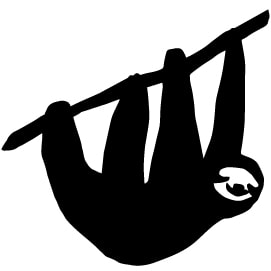What is Evolution?
|
Evolution sounds complicated, but all it really means is change in a population of plants or animals over time. This happens because organisms inherit some of their characteristics from their parents through DNA, as generations pass some characteristics are passed on more than others, and so the population as a whole slowly changes.
The speed of evolutionary change depends on the length of species generation. The shorter the gap between generations – the faster the evolutionary change happens. Therefore evolution happens faster in bacteria, than e.g. in elefants, trees or humans. The character that is being altered by evolution, needs to somehow have an effect on the individual's compentence, like success in reproduction or survival. Then the characters of the individuals who survive until the reproductive age and produce many offsprings, will be passed on generation by generation. One example of a rapid evolutionary change is the resistance against antibiotics that has developed for the pathogenic bacteria. There can be variation between the bacteria in how long they can resist antibiotics, and which ones. Then the antibiotic treatment results in strong selection of those bacteria cells, that do not die during the medication and then their amount in the bacteria population can get bigger. Therefore quitting the antibiotic treatment too early gives preference to those populations, who can survive the longest against antibiotics. Because of the generation of the bacteria generation beng very short (e.g. E. Coli reproduces every 20 minutes) their evolution happens very fast, on human scale. It is also important to realise, that evolution does not result in perfect solutions, it does not have a specific goal and the chance can have a big effect on evolutionary processes. Let's imagine we have an island, with a sub-species of a certain bird, that has lost it's ability to fly due to the lack of predators and easy access to food. Then there happens a volcanic erruption on the island, and kills all the birds unable to fly. They are therefore wiped out due to a bad luck and not because of their character (lost flying ability) would have somehow made their survival or reproduction any weaker. So, the important components for evolution are: Variation – not all individuals are exactly the same, they have differences. Heritability – these differences can be passed from parent to offspring. Natural selection – not everyone in the populations has an equal number of offspring. Time – evolution cannot happen in a single generation, it only occurs between generations. In our workshops we focus on demonstrating all these aspects, and the consequences of them that we can see in the world around us. – – – – – – – – – – – – More about evolution Videos: BBC Earth: David Attenborough explaining the tree of life Natural selection explained simply What is evolution? Richard Dawkins explains evolution and natural selection Harvard Medical School: The Evolution of Bacteria Websites & articles: Darwin Correspondence Project Laland et al (2014): Does evolutionary theory need a rethink? Nature education: Evolution Books & articles: * Davies, Nick: Cuckoo - Cheating by Nature. Bloomsbury. 2015. * Radeva, Sabina: Charles Darwin's On the Origin of Species. Puffin Books. 2019. A non-fiction book for children. * Scott, Katie: The Story of Life. Templar Press. 2001. |
|
– – – – – – – – – –
Our materials are licensed under the Creative Commons Attribution-ShareAlike 4.0 International License: http://creativecommons.org/licenses/by-sa/4.0/. It means you can use our materials freely, but please remember to always credit our work and mention us whenever you are sharing contents of our project online: Instagram: @evolution_in_action, Facebook: @evoluutiopajat, Twitter: @EvoWorkshops. If you use our materials in teaching, we are happy to hear greetings and feedback. You can tag us on social media or send us an email: [email protected] Evolution in Action logo: jpeg, eps |
